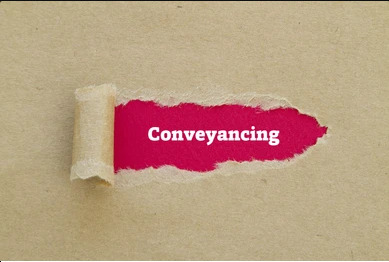Conveyancing refers to the legal transfer of properties from one owner to another. The process begins when a buyer makes an offer on an asset and gets accepted by a seller. The legal step continues until a buyer gets the keys to the property.
A licensed conveyancer or conveyancing solicitor acting on behalf of the seller or buyer will carry out the process. To help you understand what conveyancing is, here are important points you should look at:
- How the Process Works
Immediately a buyer’s offer is accepted, the solicitor of the seller may draft an agreement. This agreement or contract should outline all the conditions of sales and terms of the deal, including the costs.
During the completion process of conveyance, the buyer’s attorney should check the papers and deeds, register the purchase, and report to HMRC. Other procedures you should take care of in between the process include:
- Securing a mortgage
- Exchanging and signing contracts
- Making inquiries and conducting searches
2. Types of Conveyance
The main types of conveyance include mineral rights and real estate. Mineral rights conveyance applies to the oil and gas sector. Since land is a type of real estate with the attached right, oil and gas companies can use conveyance to refer to agreements, which transfer ownership of a particular parcel.
On the other hand, real estate applies to residential properties. It may also be referred to as a sales deed. The procedure behind this type of conveyance encompasses a review of liens and encumbrances so as to settle all taxes, confirm financing, prepare every document for final settlement, and meet all conditions.
3. What Conveyancers Do
A conveyancer who can also serve as a property dispute lawyer can provide you legal counsel and details on how you can transfer properties. The expert can also organize the right documentation you need for settlement, offer advice where necessary, and communicate with lenders on your behalf.
You can also use the services of a conveyancer to change an easement, subdivide a land, sell/buy land, and update your title deed, especially when someone dies.
4. Costs of Conveyancing Services
Conveyancing costs differ based on the price of your home. Typically, the conveyance services costs between $550 and $1,600, VAT included. The price may also be higher for the ‘no fee and sale’ service.
It is also vital to note that some factors might influence your conveyancing price. This may include surveys, appraisals, and inspections.
5. Timeline for the Process
As mentioned, the conveyancing procedure begins the moment you make an offer as a buyer or accept it on your house and lasts when the keys for the asset are exchanged.
The procedure might also be shorter, especially when you are a cash buyer. With such, it will only take you around 3-4 months.
6. Benefits of Conveyancing Services
Selling and buying a home is a complicated procedure, which might be riddled with errors if you don’t involve an expert.
Conveyancers know the real estate industry’s ins and outs and may speed up every legal aspect of the process. Apart from handling legal aspects, conveyancing services can also:
- Organize your finances
- Ensure satisfaction with the agreement
- Carry out extensive searches
Final Touches!
Purchasing a home is a costly investment, which you should make. While it is not legally required to hire a professional conveyancer, the services are still resourceful towards a positive outcome. With complicated tasks involved, it can be in your best interest to look for a reliable, experience


















